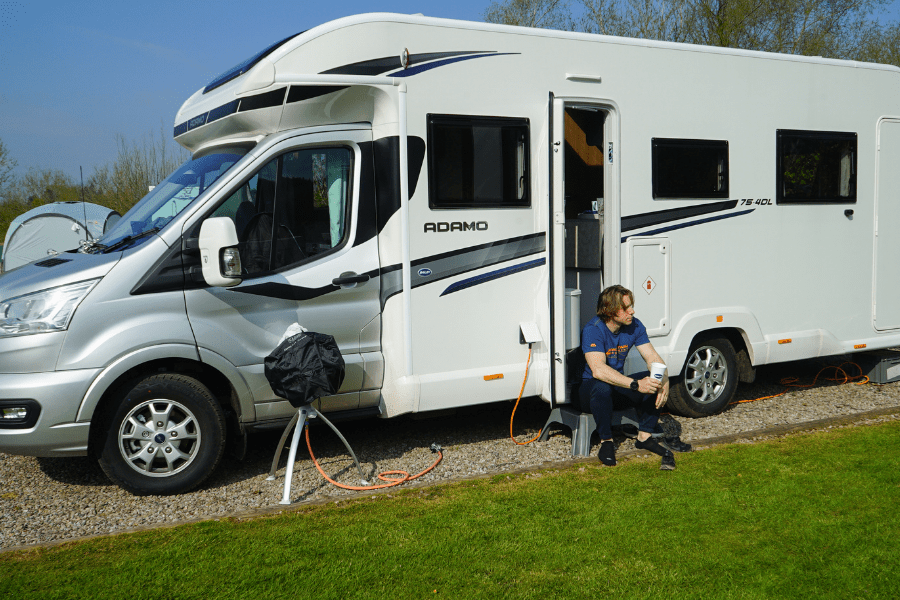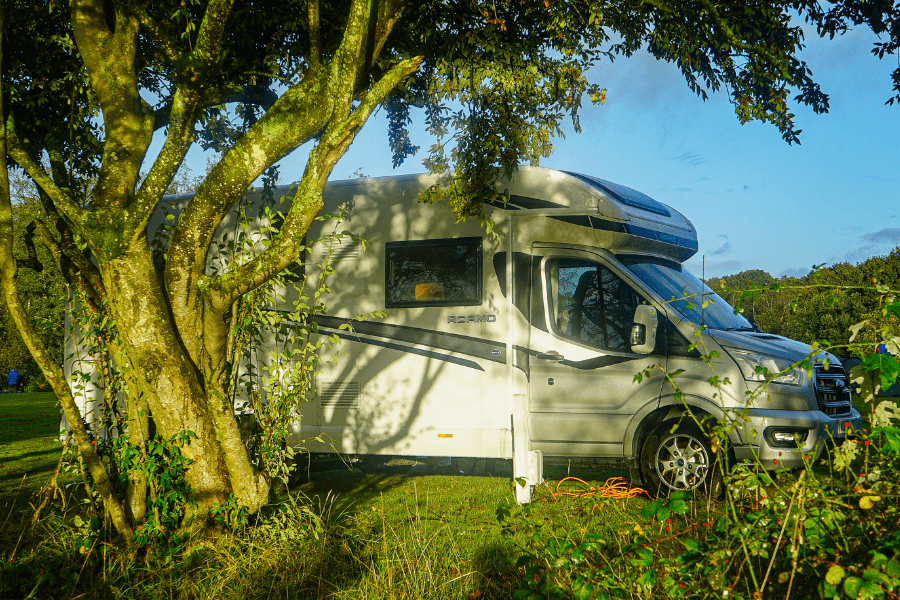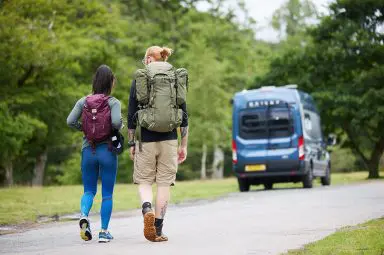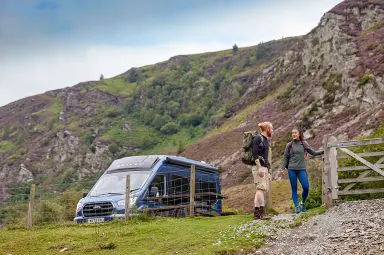How to Camp Greener

Every living creature has an impact on its environment. But, with most that effect is, through the organism’s life, balanced. People tend to have a more detrimental impact, and one of the greatest reasons is our excessive consumption. We use more resources than we need. However, camping allows us to minimise this. And the first part of a solution is awareness of the problem.
While we camp, regardless of the means, be it caravan or motorhome, we are more aware of what we do and what we use. The reduced space and the necessity to replace resources we normally take for granted make us acutely aware of what we utilise and why. Whether you have to refill bottles of water, replenish the water tank in your caravan or monitor the descending percentages on the water metre, as in my Adamo motorhome, we are forced to become conscious of our consumption of a basic resource, and the effort required to replenish it, that for most seems infinite and can be obtained with no effort. We do not leave taps running in my motorhome.

There is an argument to be made about the carbon footprint of driving. This is a fair point, however, driving still has significantly less impact than flying. Obviously, the shorter the driving distance, the less the environmental impact but a study in The States showed that a family of four driving from New York to Los Angeles generated less Carbon than if they’d flown. A time will come when we can purchase electric camping vehicles. We’re not there yet. The vans suitable for campervans do not yet have, in my opinion, sufficient range and speed of charging to make them viable. But there are now electric cars that are, on a single charge, capable of many hundreds of miles whilst towing a caravan. And I’ve spotted several campsites in the UK now providing EV charging points.
Campsites themselves have a reduced impact compared to hotels. The amount of energy and water required to accommodate one guest is considerably more when compared to a single camper. Not only in terms of things like energy but the huge amount of water consumed by hotels for the daily cleaning and washing of linen and towels. There are even some campsites that are striving for Net-Zero status. There are already some who have installed solar showers, composting toilets and wind turbines and campsites like The Quiet Site in The Lake District claims to generate more electricity than it uses.

We all have an impact on our environment. As camping enthusiasts have a vested interest in protecting the environments we choose to spend our time in, I believe, the camping community is one of the most motivated communities when it comes to environmental protection. As well as supporting campsites and companies that are striving to become greener, something not always easy and often impacts profits, we can look to constantly reduce our consumption and impact.
Previous
New Year, New Plans
Next
Go Closer
Latest news & events
See all news & eventsChipping Sodbury Spring Sales Event
BADMINTON ROAD, CHIPPING SODBURY, BRISTOL
West Country Motorhomes Open Weekend
BRISTOL ROAD, BRENT KNOLL, HIGHBRIDGE, SOMERSET
Swindon, Oxford and Reading Caravan and Motorhome Centre Easter Sales Event
GREATFIELD, ROYAL WOOTTON BASSETT, WILTSHIRE
Grantham's Midlands Caravan & Motorhome Season Ready Show
SPITTLEGATE LEVEL
GRANTHAM

